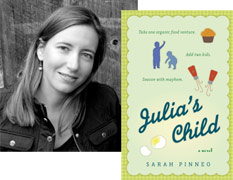| Prolific Fiction Writers at Work |
I have two little boys, 6 and 8. When they’re not busy at school, they spend the whole day pretending. My husband and I have shared many a loaded glance over the ridiculousness of their results. Yesterday, for example, they were half turtle, half man. This was inspired when one of them threw a towel over the other one, and the pretending didn’t let up for more than thirty minutes. The low point was when they nearly came to blows over who had the better towel / shell, until one of them remarked “you know, turtles can visit other turtles inside their shells. It’s like a play date.”
Meanwhile, on those rare occasions when the house is quiet, I sit fuming at my laptop trying to put out a few hundred words of fiction. When perfectly formed dialog and drama don’t flow readily through the keyboard, I get twitchy.
I’ve never transcribed my children before, but I’m guessing they produce several thousand words of fiction an hour. Compare and contrast to my skimpy birthed-by-fire paragraphs. So which of us is wiser?
When I hit the biggest roadblocks to producing fiction, it’s always when I’ve misplaced the best writing advice I’ve ever read—Anne Lamott’s concept of shitty first drafts. Chapter Three of her classic Bird by Bird is the only text on writing that I ever force into anyone’s path. Not only does Lamott give you permission to write shitty first drafts, she actually manages to prove that it’s an essential part of the writing process.
This is how it’s supposed to work: sit back down in front of that blank page, and go ahead and write a scene that feels as lively and realistic as a couple of Barbie dolls talking to one another in plastic dolly voices.
Take several deep breaths and remind yourself that it’s okay.
Once you shove your characters around like a couple of action figures, you’ll be able to see the scene for what it is. Slowly and at great personal cost, those bits of dialog and suggestion will be combed and fluffed into a living, breathing moment that will not sound ridiculous. It will be free of half-terrapin-half-kindergartener moments.
But this magic can only happen if you free yourself to sound ridiculous, to spit clichés onto the page like so many crumbs under my young son’s chair, and clean it up later.
As I type this, I can hear that the game in the other room has changed. My younger son has just declared “I’m half squid, half dolphin, half jaguar and half horse.” The fiction is still going strong, but someone should really teach that child about fractions.

Sarah Pinneo is a novelist, food writer and book publicity specialist. Her most recent book is Julia’s Child. Follow her on twitter at @SarahPinneo.
4 comments:
What a great post. I love the imagery of plastic dolly voices, as well as turtles having playdates under their shells. Truly funny ending as well.
Thank you for this. I needed permission and a reminder of Anne Lamott's great advice. Blessings to you, your family and your writing.
Thanks, guys! Yes Lee... I need reminders too! I keep learning the same advice over and over again. Somehow.
This was *exactly* what I needed to hear. I'm coming off revisions, and the bravery to write something fresh and terrible is proving hard to come by.
Post a Comment